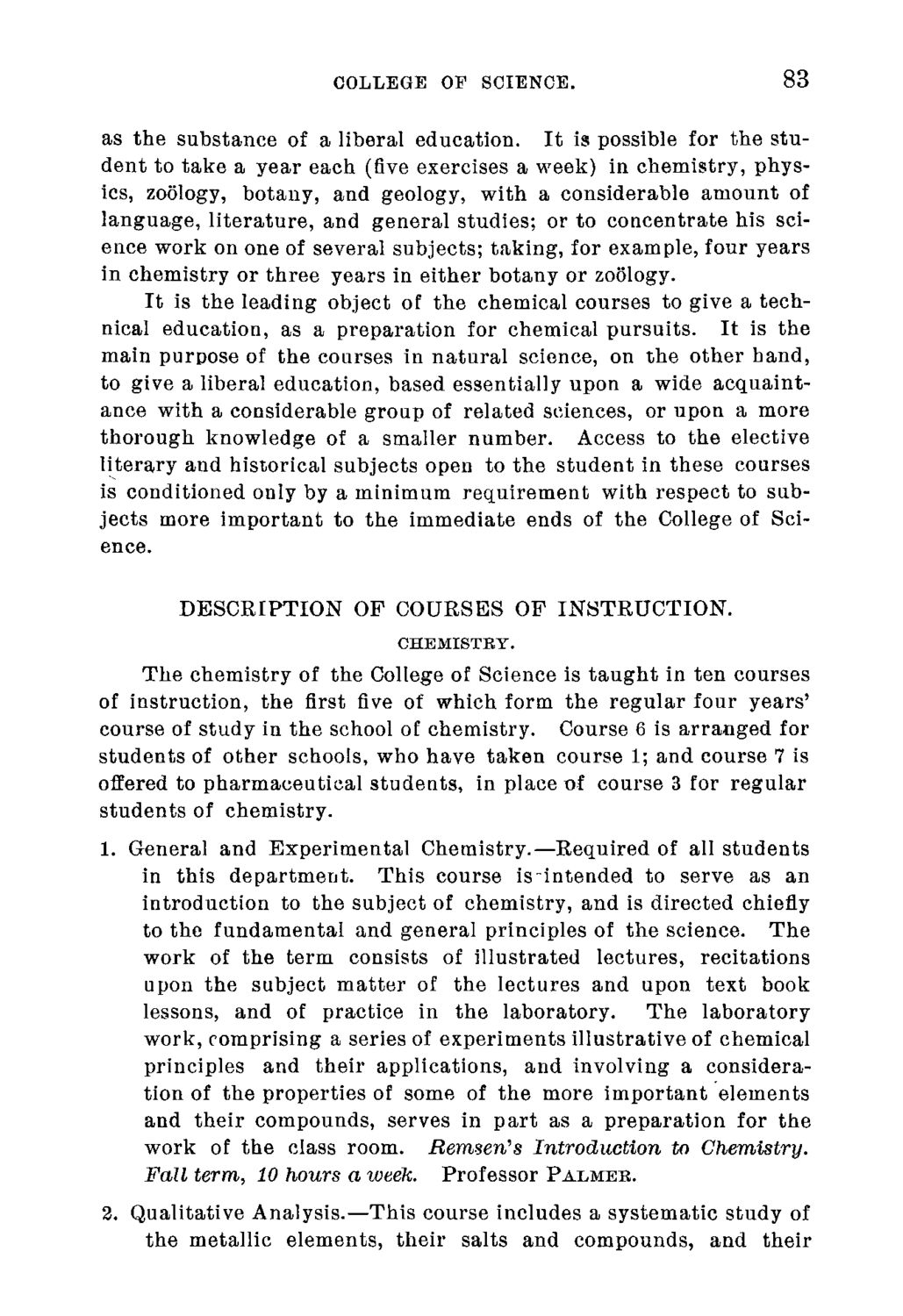| |
| |
Caption: Course Catalog - 1891-1892
This is a reduced-resolution page image for fast online browsing.

EXTRACTED TEXT FROM PAGE:
COLLEGE OF SCIENCE. 83 as the substance of a liberal education. It is possible for the student to take a year each (five exercises a week) in chemistry, physics, zoology, botany, and geology, with a considerable amount of language, literature, and general studies; or to concentrate his science work on one of several subjects; taking, for example, four years in chemistry or three years in either botany or zoology. It is the leading object of the chemical courses to give a technical education, as a preparation for chemical pursuits. It is the main purpose of the courses in natural science, on the other hand, to give a liberal education, based essentially upon a wide acquaintance with a considerable group of related sciences, or upon a more thorough knowledge of a smaller number. Access to the elective literary and historical subjects open to the student in these courses is conditioned only by a minimum requirement with respect to subjects more important to the immediate ends of the College of Science. DESCRIPTION OP COURSES OP INSTRUCTION. CHEMISTBY. The chemistry of the College of Science is taught in ten courses of instruction, the first five of which form the regular four years' course of study in the school of chemistry. Course 6 is arranged for students of other schools, who have taken course 1; and course 7 is offered to pharmaceutical students, in place of course 3 for regular students of chemistry. 1. General and Experimental Chemistry.—Required of all students in this department. This course is"intended to serve as an introduction to the subject of chemistry, and is directed chiefly to the fundamental and general principles of the science. The work of the term consists of illustrated lectures, recitations upon the subject matter of the lectures and upon text book lessons, and of practice in the laboratory. The laboratory work, comprising a series of experiments illustrative of chemical principles and their applications, and involving a consideration of the properties of some of the more important elements and their compounds, serves in part as a preparation for the work of the class room. Remsen's Introduction to Chemistry. Fall term, 10 hours a week. Professor PALMER. 3. Qualitative Analysis.—This course includes a systematic study of the metallic elements, their salts and compounds, and their
| |